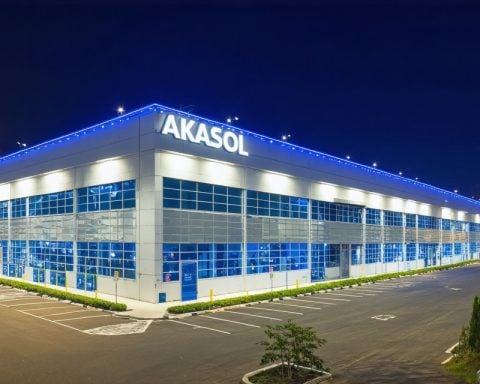Michigan Unveils First-Ever EV Fast Charger
The state of Michigan has made significant strides in promoting electric vehicle (EV) accessibility with the opening of its first-ever fast charger. Situated at Meijer, located at 6200 South Pennsylvania Avenue in Lansing, this new charging station is a product of the National Electric Vehicle Infrastructure (NEVI) program in collaboration with the Rivian Adventure Network. The station boasts six direct current (DC) fast chargers, one of which is designed to accommodate trailers.
The Importance of This Development
This fast charger is part of Michigan’s broader initiative to deploy a total of 40 DC fast charging stations, supported by nearly $23 million from the Michigan Department of Transportation. With a target of having 2 million EVs on the state’s roads by 2030, these chargers are crucial for the transition to clean energy transportation.
The NEVI program, an initiative of President Biden’s Bipartisan Infrastructure Law, aims to enhance charging station accessibility along alternative fuel corridors. To qualify for funding, these stations must adhere to strict criteria, including public accessibility 24/7 and essential amenities.
What’s Next for EV Charging in Michigan?
Michigan is set to allocate $110 million in NEVI funds by 2026 to establish over 100 fast chargers. Seven more stations are currently in design, with plans to be operational by early 2025. This initiative complements other clean energy efforts within the state, such as the MI Healthy Climate Plan.
Open to All EV Drivers
While part of Rivian’s network, this station is accessible to all EV users. With a commitment to renewable energy, charging sessions contribute to a greener environment, making it a beneficial choice for eco-conscious drivers.
Michigan Leads the Charge: Unveiling Its First-Ever EV Fast Charger
Introduction
Michigan is taking bold steps towards an electrified future with the opening of its first-ever fast charger, marking a significant milestone in the state’s electric vehicle (EV) infrastructure development. Strategically located at Meijer in Lansing, the new charging station is an emblem of progress in clean energy transportation, supported by the National Electric Vehicle Infrastructure (NEVI) program in partnership with the Rivian Adventure Network.
Overview of the EV Fast Charger
The newly operational charging station features six state-of-the-art direct current (DC) fast chargers, including one specifically designed for accommodating trailers, ensuring accessibility for all types of electric vehicles. This facility is expected to significantly enhance the charging experience and reduce range anxiety for EV drivers across Michigan.
Significance for Michigan’s EV Landscape
Michigan’s goal of having 2 million electric vehicles on the road by 2030 signifies a commitment to sustainability and environmental responsibility. This initiative aligns with a national push to increase the availability of EV charging stations, especially along alternative fuel corridors, as part of President Biden’s Bipartisan Infrastructure Law. The NEVI program emphasizes accessibility, public availability around the clock, and the provision of basic amenities at charging locations.
Future Expansion Plans
In a bold forecast for the coming years, Michigan is set to commit $110 million in NEVI funding by 2026 for the establishment of over 100 additional fast charging stations. As part of this expansion, seven more stations are currently underway in design, with expectations to be operational by early 2025. This effort reinforces the state’s commitment to transitioning towards cleaner energy and complements initiatives like the MI Healthy Climate Plan.
Accessibility for All EV Drivers
Though part of the Rivian Adventure Network, this fast charging station is open to all electric vehicle users, providing an inclusive charging solution. This facility not only supports EV drivers but also contributes to environmental sustainability by leveraging renewable energy sources for charging.
Pros and Cons of Michigan’s EV Charging Initiative
Pros:
– Enhanced accessibility for EV drivers across Michigan.
– Contribution to the state’s ambitious climate goals and clean energy initiatives.
– Availability of fast chargers that can accommodate different types of electric vehicles, including larger ones like trailers.
Cons:
– Initial costs associated with installation and maintenance of charging stations may be high.
– Dependence on continuous investment to maintain and expand the charging network.
Trends and Innovations in EV Charging
The establishment of fast charging stations in Michigan aligns with global trends towards sustainable transportation solutions. As electric vehicle adoption surges, innovations such as smart charging technology and renewable energy integration are on the rise, promising a more efficient and eco-friendly future for EV infrastructure.
Challenges and Limitations
While these advancements are significant, challenges remain, such as ensuring network reliability, managing peak charging demand, and maintaining affordability for consumers. Continued investment and public-private partnerships will be crucial in overcoming these hurdles.
Conclusion
Michigan’s first-ever EV fast charger is a pivotal development in the state’s journey toward a sustainable transportation future. As the state continues to invest in infrastructure and expand access to fast chargers, it paves the way for a cleaner, greener, and more accessible mobility landscape for all.
For more insights on electric vehicles and sustainability initiatives, visit Michigan.gov.


















